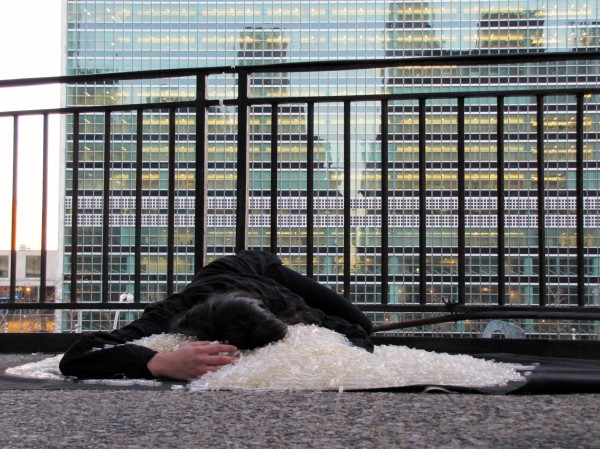Solidarity with the democratic movement in Iran!
Lift U.S. sanctions against Iran! End collective punishment of the Iranian people!
Along with millions of people both inside and outside of Iran, we are deeply inspired by the determination of the Iranian people to use the June 14th elections to press the realization of their own democratic aspirations. Hassan Rouhani won a decisive victory over five other candidates in the first round of voting, securing 50.7 percent of the more than 36 million votes cast in a massive turnout, with 72.7 percent of eligible voters casting their ballots. Rouhani describes himself as a “moderate,” and he has not challenged the fundamental principles of the Islamic Republic. Nor does his election change the fact the Supreme Leader Ayatollah Khamenei and the Revolutionary Guard continue to control the most important levers of power. Nonetheless in the course of the election campaign Rouhani took several stands that encouraged people who are dissatisfied with the Iranian government to vote for him: for example, he criticized the morality police, called for lifting restrictions on the Internet, lamented the fact of widespread unemployment, and declared that, “in consensus with higher officials,” political prisoners would be freed.
Despite relentless political repression and massive economic instability, medical shortages, inflation, unemployment, etc., exacerbated by U.S. sanctions, the popular democratic movement in Iran has shown itself to be remarkably resilient: tens of thousands of Iranians marched in cities across the country on June 15th to celebrate the election results, and their chants and slogans such as the following showed the enduring momentum for change and a desire to keep alive the memory of those who lost their lives during 2009’s post election uprisings:
- Green movement! Happy Birthday!
- This is the remembrance of 2009 protests
- Hassan (Rouhani)! bring the key, and open the Evin prison
- June 14th gets our stolen votes back
- Green movement/reform has not died, it has brought Rouhani
- Rouhani do not forget, Mousavi must be released
In response to the Iranian elections, the White House and Secretary of State John Kerry praised the “courage” of the Iranian people, attempting to position the United States on their side against their government. But the administration’s tribute is blatantly hypocritical: U.S.-led sanctions are directly contributing to the suffering of these “courageous” people, particularly most recently. In the run up to the elections, the U.S. escalated sanctions against the petro-chemical industry, the car industry and the Iranian currency itself, greatly exacerbating the difficulties Iranians already encounter in meeting the needs of everyday life. Instead of offering empty phrases of admiration for the Iranian people, the U.S. should lift sanctions now and stop the collective punishment and intimidation of ordinary Iranians.
As the Iranian people continue to resist from below the many sources of oppression they face, both internally and from U.S./Israeli aggression, we in Havaar call on the Obama administration to lift all sanctions on Iran immediately and stop the devastation of millions of Iranians’ lives. For example, there is an urgent and proliferating health care crisis caused directly by sanctions on “dual use” goods and on hard currency needed to buy medicine and medical supplies. As Iranian hospitals run out of essential medications and the parts to fix medical equipment, more patients will die prematurely of easily preventable deaths. Havaar has launched a campaign to enforce the exemption for humanitarian goods, including medicine, and we urge the Obama administration to issue an unequivocal statement to banks that they will not be penalized for facilitating the purchase of items that fall under the exemption clause and to provide a clear exemption from banking sanctions for humanitarian transactions. This can be a first step towards alleviating the harsh effects of the U.S. sanctions program.
We congratulate the millions of Iranians who seized this electoral moment to show yet again the political force they are. And we call on President Rouhani and the new Iranian government to live up to the hopes of the people who voted for change. We call for the freeing of Green movement leaders Mir-Hossein Mousavi and Mehdi Karroubi and all political prisoners, and for an end, at last, to state repression in Iran. Movements for women’s rights, labor rights, and all human rights need the freedom to organize without fear of governmental punishment.
We furthermore call on our government here in the United States to stop adding to the burdens Iranians face and lift the sanctions and end the war threats now!



